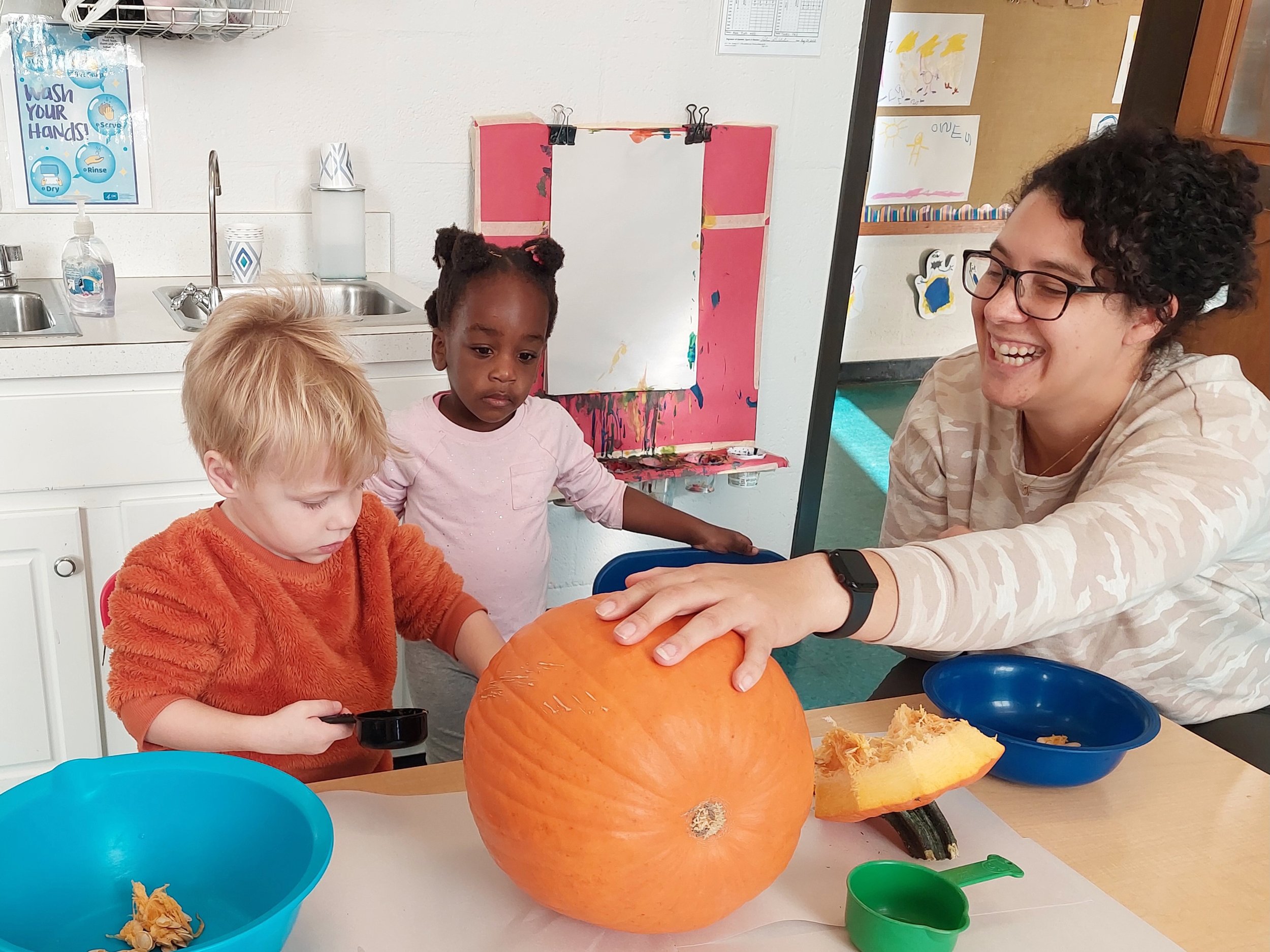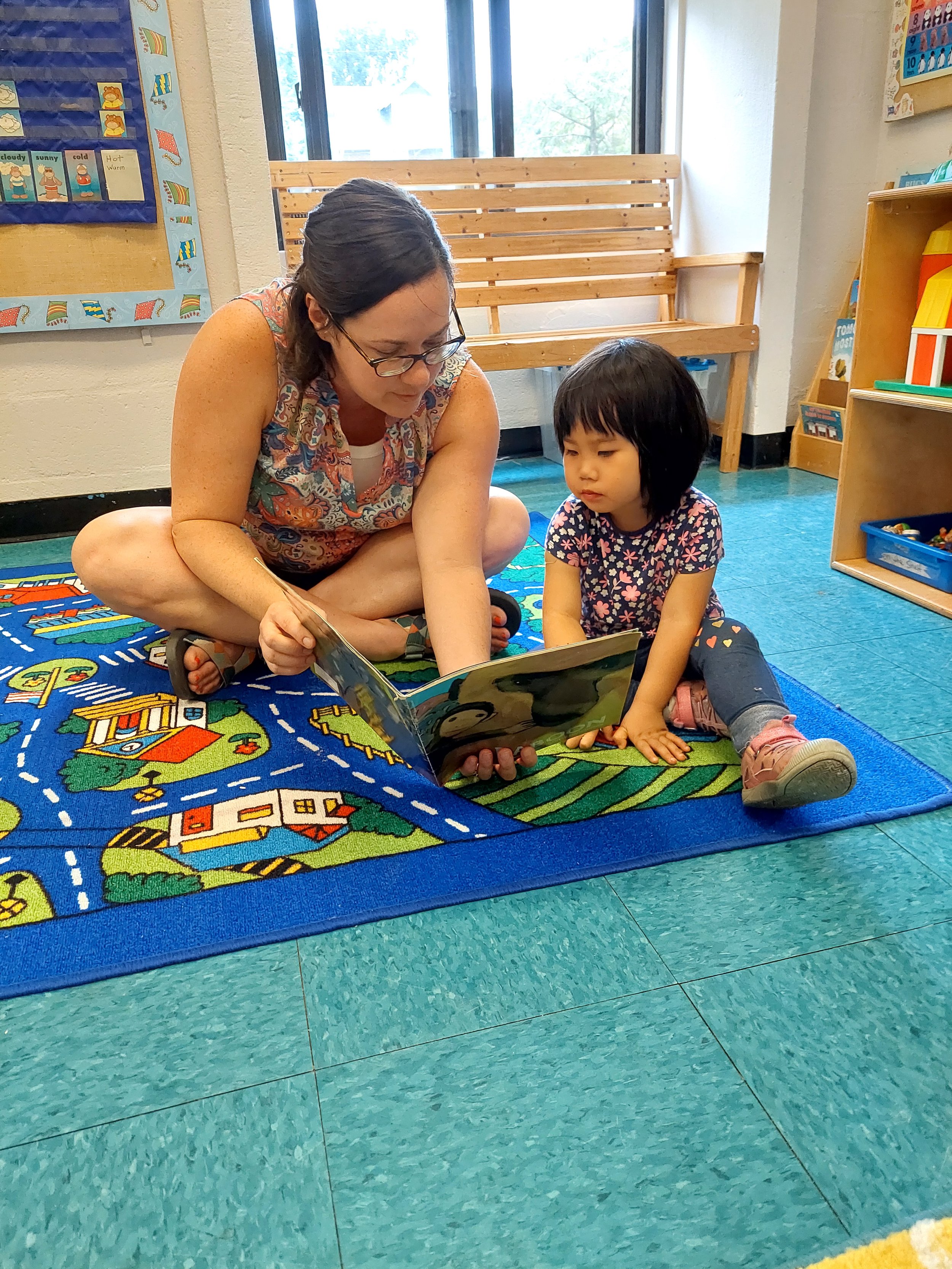
Co-Oping Requirements
College Park Nursery School is a cooperative, or co-op, preschool. This means that our school relies on active family engagement to function and thrive. Every parent or caregiver is a valued part of our cooperative membership and plays an important role at our school, not only for our children, but for the program as a whole. Here at CPNS, we value the strength of a village. We believe that we - teachers, staff and members - are better together! At CPNS, all families are required to do the following:
Co-Op in the Classroom*
Parents/caregivers help our lead teachers as aides in the classroom. Co-oping adults sweep floors, bring classroom snacks, build toy towers, help students navigate new social interactions, etc. This type of engagement in the classroom connects you to your child, their friends, and the wonders of early childhood. You’ll also have the opportunity to observe and learn from our talented and experienced teachers. The amount of co-oping per class is listed below.
Take on a Family Job
Each family at CPNS is assigned a family job to support school operations and build community. Family jobs are assigned for the entirety of the school year so that the workload of operating the school is shared, instead of being sourced out. This keeps the school functioning from day to day and helps keep tuition costs low. Families are assigned jobs that match their preferences, interests, skillsets and availability.
Meetings & Events
All families are required to attend an annual orientation at the beginning of each school year, a “Big Clean” event in August, and 3 out of 4 membership meetings annually. Families are also expected to participate in the various school events that happen throughout the year to the best of their ability, such as our annual Trash-A-Thon fundraiser in April and various community socials!
A full list of member responsibilities is outlined here:
Classroom Co-Oping Numbers
-

2s
2 co-opers/class
11-12 times per year
-

3s
1 co-oper/class
8-9 times per year
-

3/4s
1 co-oper/class
11-12 times per year
-

Pre-K (4s)
1 co-oper/class
13-14 times per year
Note: The amount of co-oping per class listed above is based on a full-time co-oping schedule (no buyouts) in class with full enrollment (12 students/class). If a class is under-enrolled, parents/caregivers will have to co-op more than the amount of times listed above.
*Can I still join CPNS if I am not able to co-op in the classroom full-time?
We understand that not all families have the flexibility to co-op during the school day. Families who aren’t able to contribute to classroom co-oping full-time can buy out, either fully or partially, by paying an additional monthly fee (the cost is listed on the "Program and Tuitions" page). Buyout families will still benefit from our cooperative community through their participation in family jobs and community events/meetings! There is a limited number of spots for the full and half buyout per class. We are not able to guarantee the buyout opportunity to all interested applicants.
FAQs
-
This depends on what class your child is enrolled in and the number of students enrolled in the class. But broadly speaking, you can expect to co-op in the classroom about once or twice a month.
-
For licensing purposes, co-oping adults must complete state-required documentation, as well as background checks, and training.
-
Sure! We can accommodate a variety of family arrangements! Mothers, fathers, grandparents, or other primary caregivers (i.e. nannies/au pairs) may co-op in the classroom as long as they complete the required paperwork, background checks and training.
-
Unfortunately, no. Licensing regulations do not allow for siblings or other children to accompany you on your co-oping day. We have class email listservs where interested parents can trade co-op days, trade babysitting hours for younger siblings or make other arrangements so that you can participate in a way that works for your family.
-
Participating adults are assigned to co-op in their child’s classroom on a rotating basis. Co-op schedules are generated months in advance, and depend on many factors such as co-oper availability/preference, the number of buyouts in the classroom, and student birthdays.



